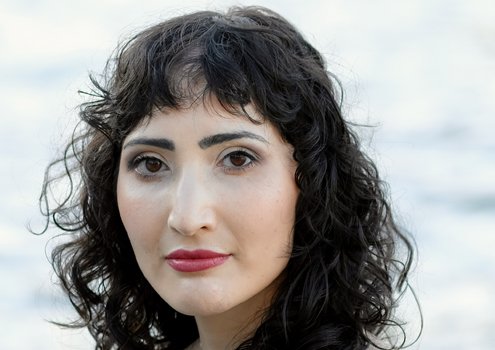Reading time: About 2 minutes
Lea Taranto says that writing is all about getting down words, any words, so that the project actually exists. The finessing comes later, in revision.
Lea Taranto is a disabled Chinese Jewish Canadian writer who lives with OCD and comorbid disorders. An MFA graduate of the University of British Columbia, alumnus of The Writer’s Studio at Simon Fraser University, and member of PRISM International‘s poetry board, she resides on traditional, unceded Halkomelem and Squamish territories in BC.
I was excited to talk to Lea about how she approaches writing.
Roughly how much time do you spend writing every day?
I don’t write every day as I find that doesn’t work for me but kudos to the folks who do. When I am drafting and editing a new project, I try to write several hours three to six days a week.
What’s a simple activity or habit that makes you a better writer?
Reading my work aloud has been crucially effective when I go about revisions. It helps me to identify awkward phrasing. Noting where I pause naturally to take a breath informs where I’ve missed punctuation like commas or where I need to break down lengthy sentences.
What interferes with your writing?
When I start drafting a project, perfectionism often kicks in. I second guess every other sentence and rearrange the same paragraph many times. Then I remember that drafting is all about getting down words, any words, so that the project actually exists. The finessing comes later, in revision.
How do you persuade yourself to sit down to write on days when you really, really DON’T feel like doing it?
I motivate myself by brewing my favourite tea to drink as I write. If it’s noisy, I listen to instrumental music to help me focus. Another thing that helps is doing writing sprints with friends, either online or in person, so we can keep each other encouraged and accountable.
Is there a particular motto or saying that you’ve found helpful for writing?
Two quotes I really like are: “If there’s a book that you want to read, but it hasn’t been written yet, then you must write it.” ~Toni Morrison
And: “You can always edit a bad page. You can’t edit a blank page.” ~Jodi Picoult.
Which stage of the writing process do you enjoy the most: researching, writing or editing/rewriting and why?
They all have their pros and cons, but two parts of the process I cherish are A: when I am finishing a project and get to make that ending resonant. And B: doing line edits, where I can delve into the intentionality and effectiveness of diction.
What’s the best book you’ve read (either fiction or non) in the last five years? Ruth Ozeki’s A Tale for the Time Being interweaves Tokyo teen Nao’s journal entries with the story of the woman who finds them much later in remote BC. This book connects Zen Buddhism with its concepts like the Time Being with quantum mechanics with defiant pacifism with the Pacific theatre during the Second World War.
What book are you reading right now?
Currently, I’m reading the first novel in a space opera trilogy by Ann Leckie called Ancillary Justice. It was recommended to me by several of my closest friends and I am already impressed by the scale and intricacy of Leckie’s world building.
What do you think is the biggest misperception that new writers have about the act of writing?
Revision takes longer than drafting and is equally important! When receiving feedback as a new writer, it’s tempting to see critiques as multiple ways your writing and project are wrong, leaving you defeated versus motivated. Remember that revising and making suggested changes are just experiments and can be changed back if they don’t work.
The debut novel by Lea Taranto is A Drop in the Ocean and it’s available for preorder from Arsenal Pulp Press.


